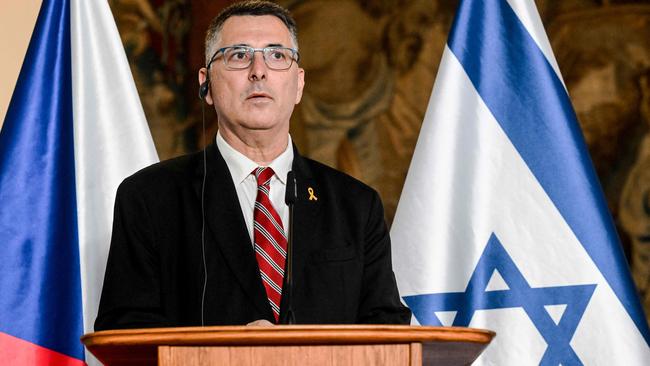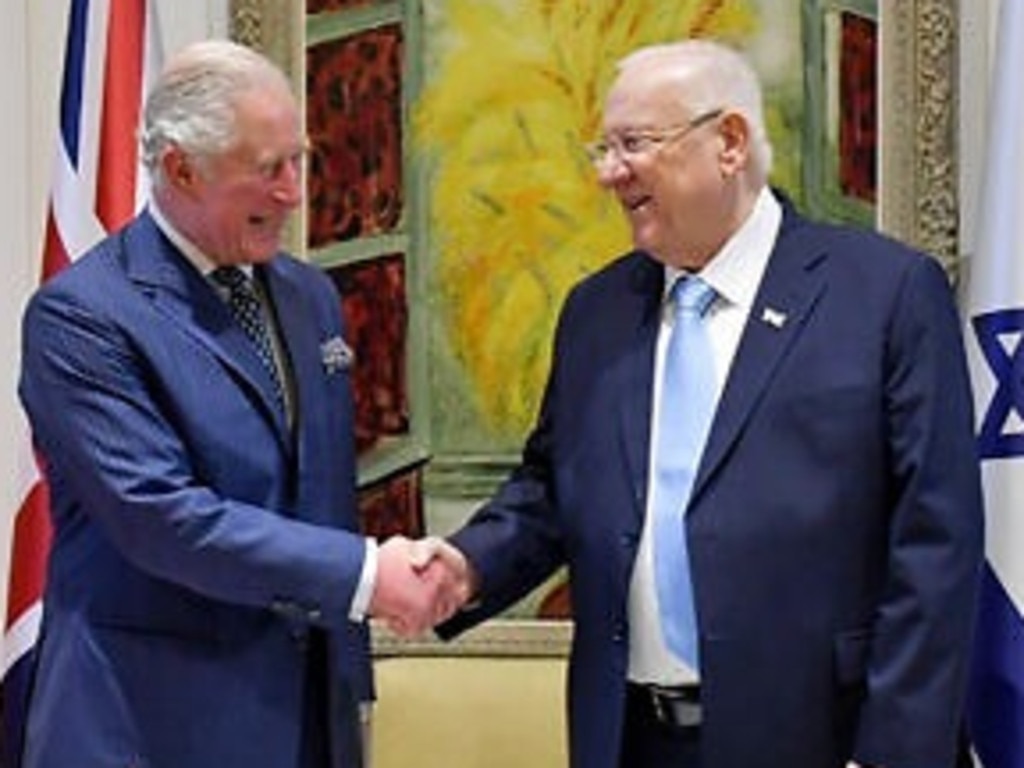New direction as Israel drops anti-Semitic Ireland
Israel has signalled it will concentrate its diplomatic missions in countries whose policies are more aligned with its interests, as it announced the close of it embassy in Ireland.

Israel has signalled it will concentrate its diplomatic missions in countries whose policies are more aligned with its interests, as it announced the close of it embassy in Ireland because of “the extreme anti-Israel policies”.
It said more energy would be put into diplomatic ties with countries looking forward to improving their relationships with Israel.
“The actions and anti-Semitic rhetoric used by Ireland against Israel are rooted in the delegitimisation and demonisation of the Jewish state, along with double standards,” Foreign Minister Gideon Saar said in a statement.
“Ireland has crossed every red line in its relations with Israel.”
Mr Saar also said Israel would open an embassy in Moldova, declaring: “There are countries that are interested in strengthening their ties with Israel and do not yet have an Israeli embassy.
“We will adjust the Israeli diplomatic structure of our missions while giving weight, among other things, to the approach and actions of the various countries towards Israel in the political arena.”
Diplomatic ties between Ireland and Israel have deteriorated after a series of moves that included Ireland recognising a Palestinian state and backing an International Court of Justice case accusing Israel of “genocide” in the Gaza Strip.
In May, Dublin said it recognised Palestine as “a sovereign and independent state” comprising the Gaza Strip and the West Bank, and agreed to establish full diplomatic relations.
Spain and Norway recognised a Palestinian state on the same day, with Slovenia following a week later, drawing retaliatory moves from Israel.
In November, Dublin accepted for the first time the appointment of a full Palestinian ambassador.
Irish Prime Minister Simon Harris called the Israeli decision to close its Dublin embassy “deeply regrettable”.
“I utterly reject the assertion that Ireland is anti-Israel. Ireland is pro-peace, pro-human rights and pro-international law,” Mr Harris posted on X.
Ireland has been among the most outspoken critics of Israel’s response to last year’s October 7 attacks by Hamas that sparked the war in Gaza. In November, Mr Harris said its authorities would detain Israeli Prime Minister Benjamin Netanyahu if he travelled to Ireland after the ICC issued an arrest warrant for him over “war crimes” committed after the October 7 attacks.
Meanwhile, Israel also announced it planned to double the Jewish population of the annexed Golan Heights but insisted it had no intention of confronting Syria after seizing a UN-monitored buffer zone.
As Islamist-led rebel forces swept Syrian president Bashar al-Assad out of power last week, Mr Netanyahu had ordered troops to seize the demilitarised zone between the two countries’ forces on the Golan Heights. His office now says the government “unanimously approved” the 40-million-shekel ($17.5m) “plan for the demographic development of the Golan … in light of the war and the new front in Syria, and the desire to double the population”.
Israel has occupied most of the strategic plateau since 1967 and annexed the area in 1981, a move recognised only by the US.
Mr Netanyahu said “the strengthening of the Golan is that of the state of Israel, and it is particularly important at this time. We will continue to establish ourselves there, develop it and settle there”.
The occupied Golan is home to about 30,000 Israelis and about 23,000 Druze Arabs, whose presence predates the occupation and most of whom retain Syrian citizenship.
Saudi Arabia and Qatar swiftly denounced the Israeli move. Riyadh expressed “condemnation and denunciation” of the plan, calling it part of the “continued sabotage of opportunities to restore security and stability in Syria”.
Doha said the Israeli declaration was a “new episode in a series of Israeli aggressions on Syrian territories and a blatant violation of international law”.
Last week, Mr Netanyahu declared the Golan would be Israeli “for eternity”. That followed an order he gave for troops to cross into the UN-patrolled buffer zone separating Israeli and Syrian forces since 1974. Troops have also operated in some areas outside the buffer zone “to maintain stability”.
Israel portrayed the move, which drew international condemnation, as a temporary and defensive measure after what Mr Netanyahu’s office called a “vacuum on Israel’s border and in the buffer zone”, following Mr Assad’s fall. In the aftermath of his overthrow, Israel launched hundreds of strikes on Syria targeting strategic military sites and weapons.
AFP





To join the conversation, please log in. Don't have an account? Register
Join the conversation, you are commenting as Logout